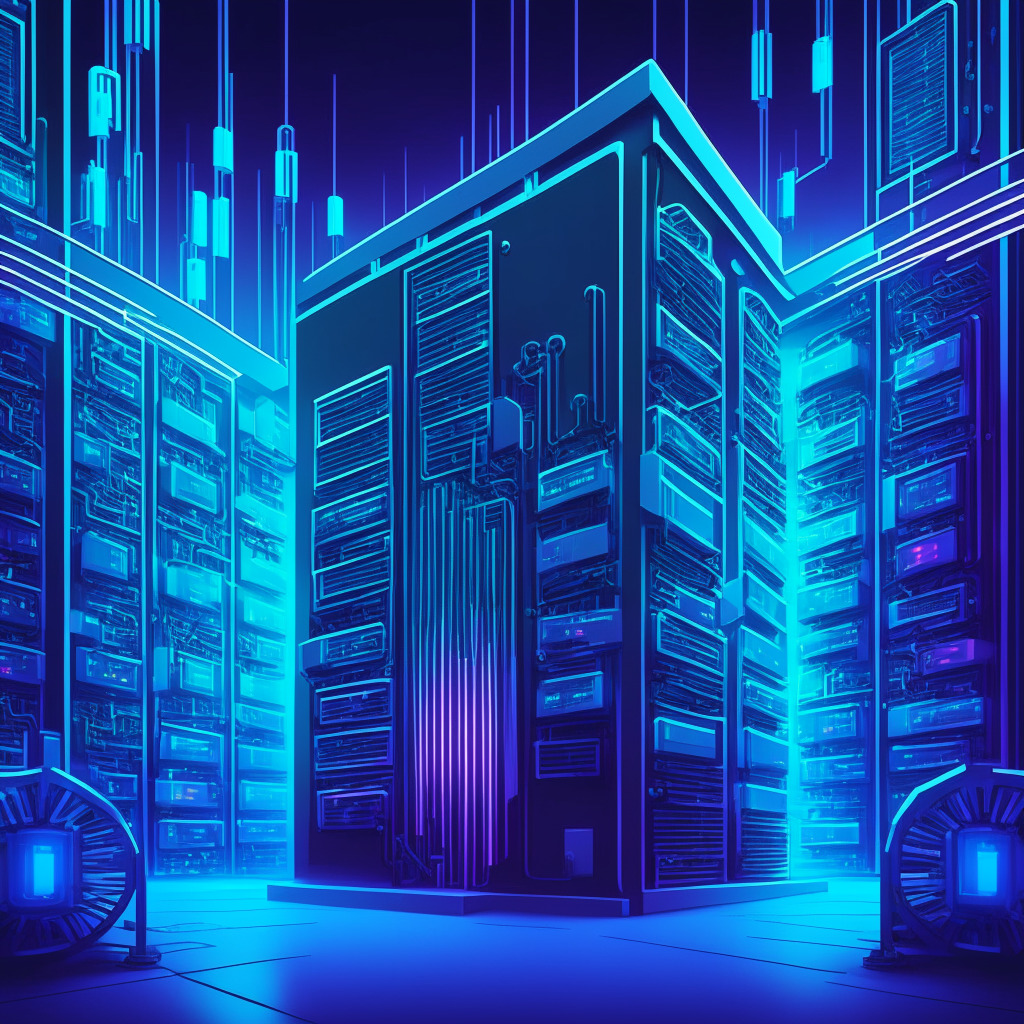Given the current state of the crypto-market, where the price of bitcoin is somewhat lagging behind its robust 2021 peak, along with the increased capital attention in the AI startup ecosystem, one can’t help but consider if crypto miners might be broadening their horizons to include AI.
The explanation behind why such a shift might occur lies within the common requirement both cryptocurrency mining and AI development share: the necessity for high-end computer chips. This critical element proves to be an issue of concern, as there is currently a global shortage of such chips.
Most bitcoin miners employ unique ASICs chips, like the Antminer S19 Pro, designed explicitly for SHA-256 hashing operations. While these chips are ideal for bitcoin mining, they don’t perform well in other tasks and cannot be repurposed, thwarting potential for diversification.
That being said, the scenario takes a different turn for more extensive mining operations. The pre-existing infrastructure these companies own — such as cooling systems, security and access to inexpensive energy — can be effectively utilized for expansion into AI.
To provide some examples, Applied Digital and Iris Energy, both Texan-based crypto miners, are beginning to open up to AI. Applied Digital recently announced a $460 million deal to host AI cloud computing in its data centre. Similarly, Iris Energy revealed an exploratory shift towards high-performance computing (HPC) data centers.
Even though skeptics may view this as a savvy tactic to latch onto a hot trend, the companies see it as a risk reduction strategy. Since mining profits correlate closely with Bitcoin prices, introducing other services, such as hosting AI computing, could break the dependence on bitcoin alone.
In 2022, Hut 8, traditionally a cryptocurrency mining company, began its transition towards HPC with a significant investment in several data centres and cloud regions. The company is now able to handle a wider range of workloads, including AI and machine learning, thereby reducing its exposure to the volatility of the crypto market.
Another notable shift comes with Ethereum’s transition from Proof of Work to Proof of Stake. The mining equipment, previously utilized exclusively for Ethereum, had suddenly become idle. These chips, unlike the specialized bitcoin mining ASICs, are versatile and now assist in rendering, gaming and AI/machine learning workloads.
Overall, companies like Hut 8, Applied Digital, Iris Energy and potentially Mintgreen seem less likely to completely abandon Bitcoin for AI, but more likely to broaden their portfolio for durability in bear markets. Diversification seems to be the new mantra, ensuring that these companies stay strategic, nimble, and most importantly – resilient, even under market pressure.
Source: Coindesk




